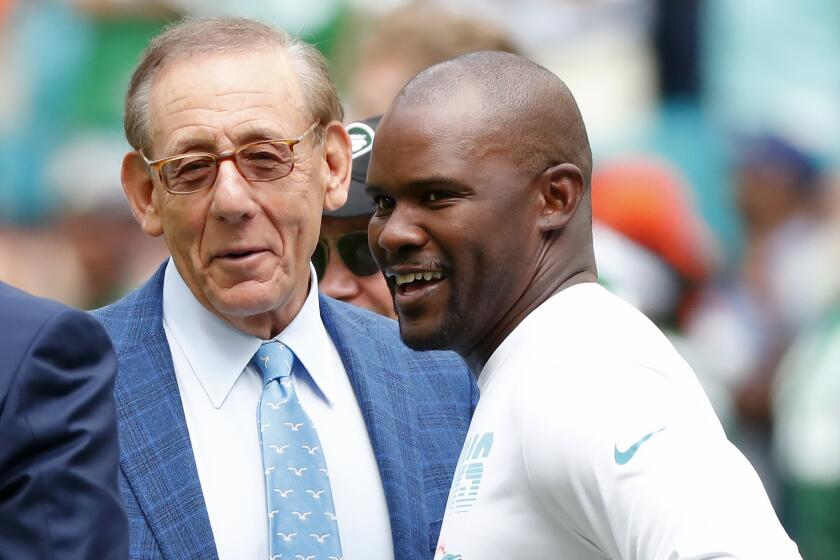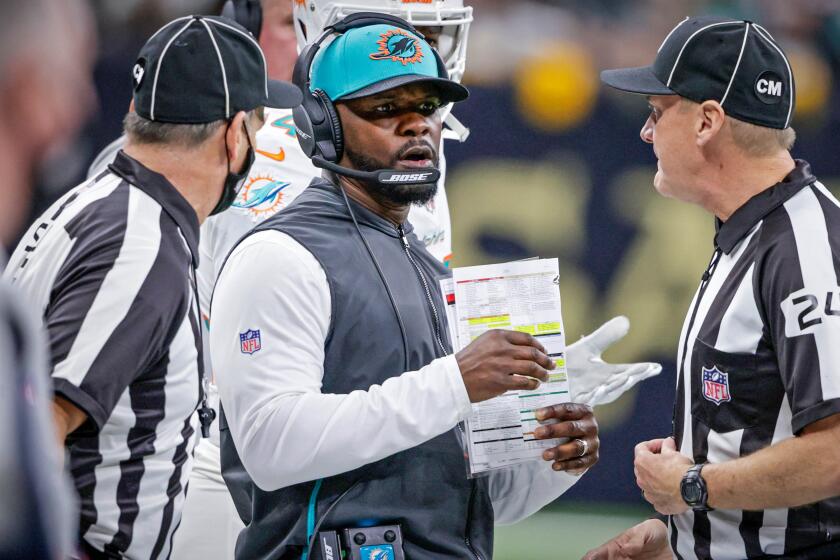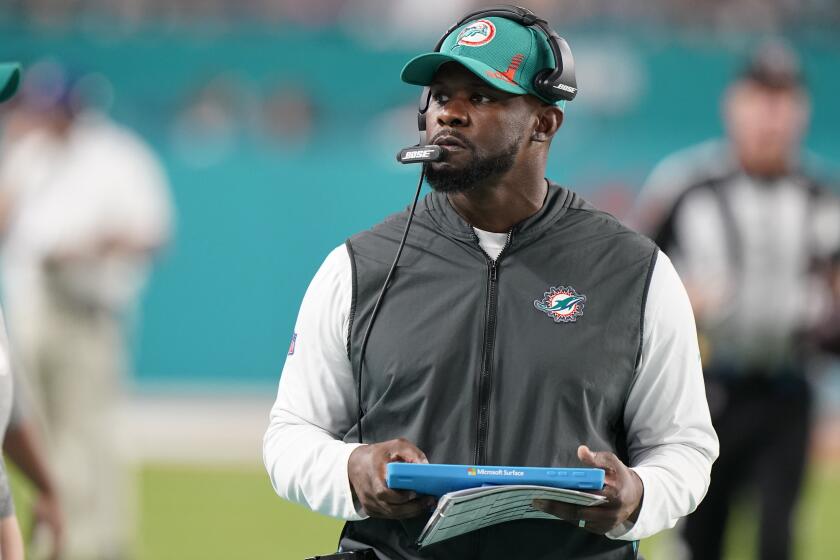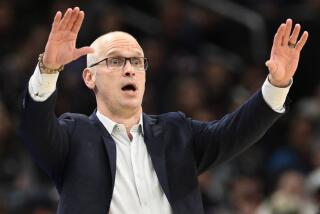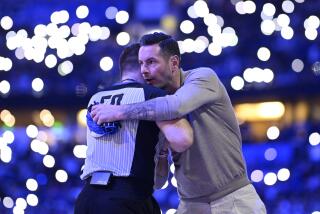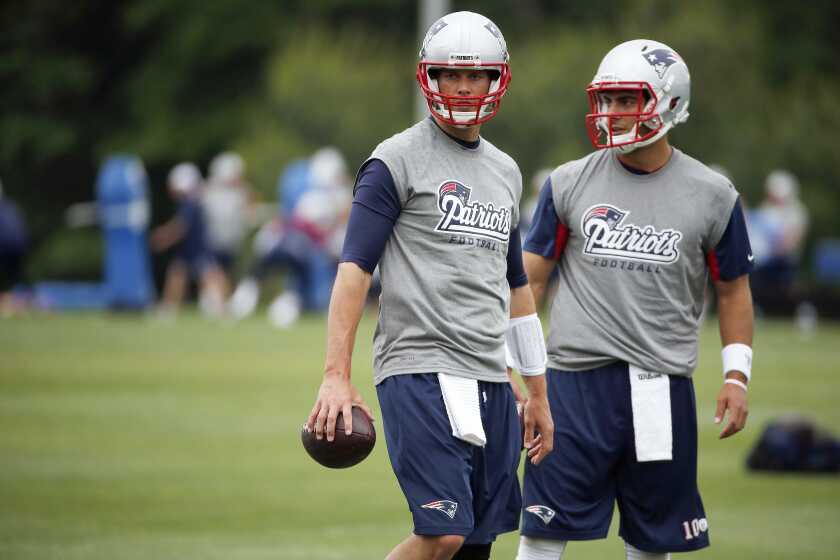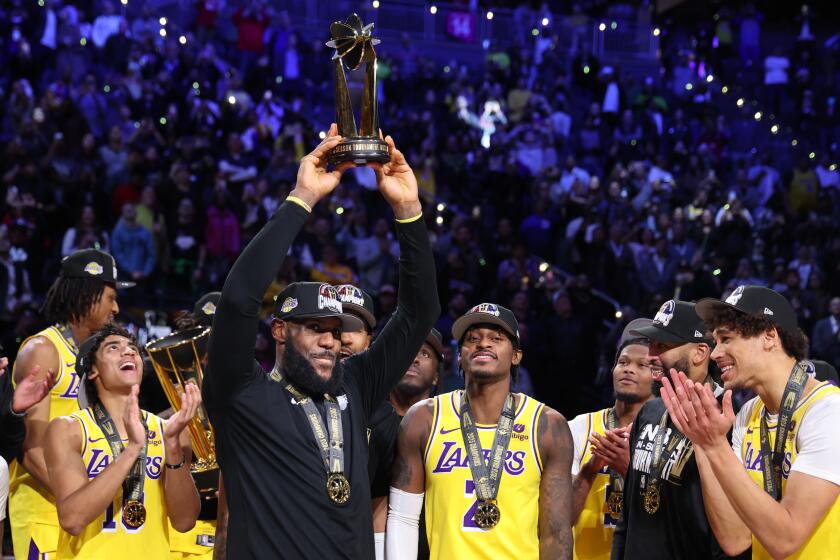Column: Brian Flores’ lawsuit features memorable receipts that could force the NFL to change
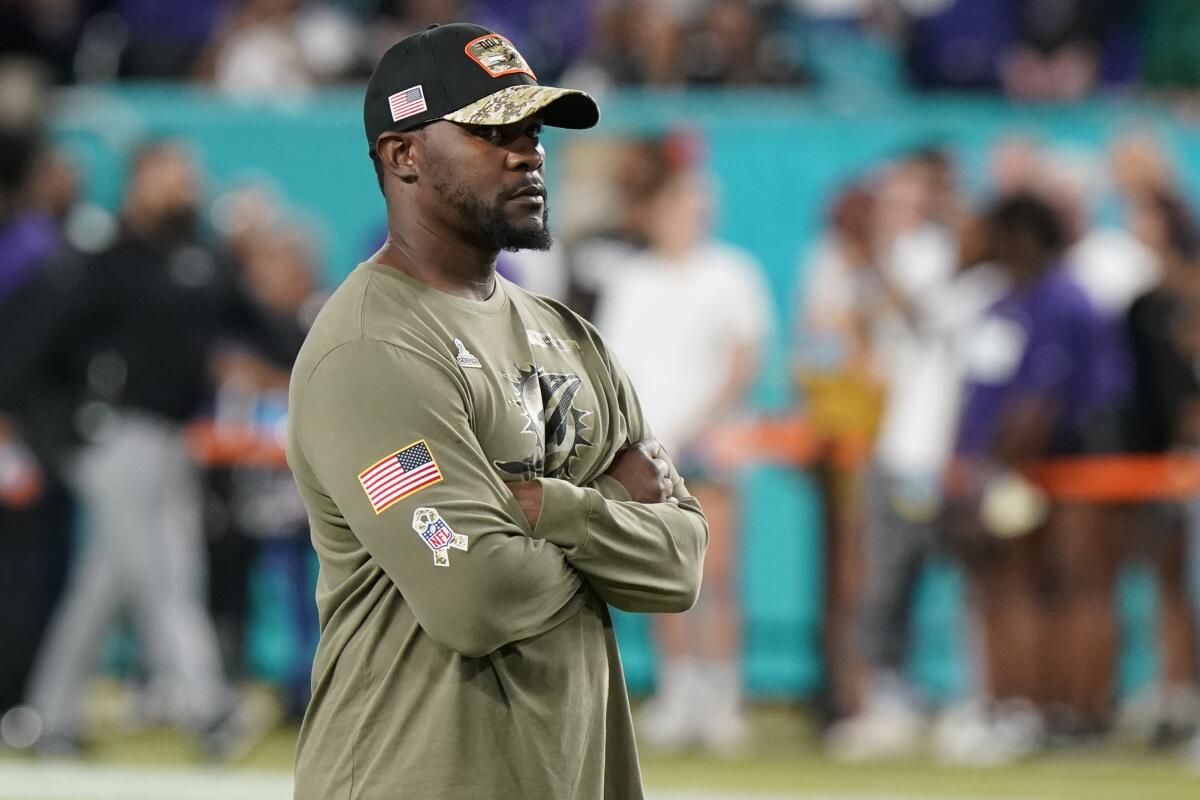
John Elway is a two-time Super Bowl champion. He’s one of the greatest quarterbacks in NFL history.
He authored The Drive.
Now, he’s a main character in The Hangover.
Less than two weeks before a Super Bowl that celebrates America’s splendor, Elway has become a symbol of this country’s shame.
Named in a 58-page federal lawsuit filed by former Miami Dolphins coach Brian Flores against the NFL and three of its teams, the Duke of Denver has taken on a new public profile as the Face of Systemic Racism.
To be fair to Elway, the Denver Broncos are denying Flores’ claims about how then-general manager Elway and other Broncos executives showed up an hour late to interview him for their head coaching position in 2019.
The team says the meeting started at its scheduled time of 7:30 a.m. and lasted 3½ hours.
“Pages of detailed notes, analysis and evaluations from our interview demonstrate the depth of our conversation and sincere interest in Mr. Flores as a head coaching candidate,” the Broncos said in a written statement.
Fired Dolphins coach Brian Flores filed a lawsuit alleging racial discrimination by NFL teams, and that his former team’s owner wanted the team to tank.
Nonetheless, it’s hard to shake the scene described by Flores, who was born to Honduran parents and is Black.
The Broncos executives “looked completely disheveled, and it was obvious that they had [sic] drinking heavily the night before,” the court papers read. “It was clear from the substance of the interview that Mr. Flores was interviewed only because of the Rooney Rule, and that the Broncos never had any intention to consider him as a legitimate candidate for the job.”
The team went on to hire Vic Fangio, who is white and posted a 19-30 record in three seasons.
Pictures like this are why Flores’ complaint could inspire change.
There is nothing new about the general nature of Flores’ grievances, how in a league with a player pool that is overwhelmingly Black — 70%, according to Flores’ complaint — there are few Black head coaches. The imbalance doesn’t elicit as much outrage as it once did, in part because well-intentioned measures such as the Rooney Rule — which requires teams to interview at least one ethnic minority candidate when hiring a head coach — haven’t stopped white franchise owners from continuing to almost exclusively hire coaches who look like them. The league’s antiquated hiring practices have become an accepted part of the sport’s culture.
That inertia could be disrupted by the details in Flores’ lawsuit.
Scenes like the one described above provide emotional texture to a problem widely understood in numerical terms — such as how today, only one of the league’s 32 teams has a Black head coach, the Mike Tomlin-led Pittsburgh Steelers.
Flores’ precise allegations offer greater context to dynamics that remain abstract concepts in the minds of many Americans.
They have to not only raise their voices but take action, whether that’s a summit like the one held in support of Muhammad Ali in 1967 or a flat-out work stoppage.
Making his complaint relatable required Flores to name names, and he is certain to pay a price for that. A Super Bowl-winning defensive coordinator with the New England Patriots who posted winning records in each of his two most recent seasons with the long-dysfunctional Dolphins, Flores could be finished coaching at 40. Colin Kaepernick didn’t play again after making a symbolic gesture, and Flores likely won’t be offered another job after taking legal action.
Flores contends his experience with the Broncos’ wasn’t the last “sham” interview to which he was subjected.
A day after he was fired by the Dolphins last month, Flores says he was approached by the New York Giants about their head coaching vacancy. Raised in housing projects in the Brownsville neighborhood of Brooklyn, Flores told Giants co-director of player personnel Tim McDonnell that coaching the team would be his “dream job,” according to documents.
On Jan. 24, Flores received congratulatory text messages from Patriots coach Bill Belichick for landing the Giants job. One problem: Flores wasn’t scheduled to interview with the Giants until three days later.
In subsequent messages from Belichick, Flores learned the Patriots coach mistakenly sent him texts that were intended for Brian Daboll.
“It is impossible to put into words the emotions Mr. Flores felt upon learning that not only would he not be getting the Giants Head Coach job — the job of his dreams — but, more importantly, that he was not even being given serious consideration for the position but being treated as a box to ‘check off’ due to his race,” Flores’ complaint reads.
Many minority coaching candidates in football and baseball have long suspected they were subjected to token interviews and never really serious candidates for the position. What’s new here is that Flores claims to have a smoking gun in the screen shots of the purported text messages from Belichick, which are included in his court filing.
Here’s what you need to know about Brian Flores’ lawsuit against the NFL, which has the potential to force significant change within the league.
Of greater concern for the league could be Flores’ claim that Dolphins owner Stephen Ross wanted him to throw games to secure a better position in the draft, offering him $100,000 for every game he lost. Flores argues that his relationship with Ross deteriorated because the Dolphins won too many games to secure the first pick.
While raising questions about the league’s competitive integrity, Flores’ allegations also support the theory that Black coaches are often set up to fail. What if the Dolphins had finished 0-16 or 1-15 like Ross allegedly wanted? There was no guarantee Flores would be retained beyond that season or ever be offered another head coaching position by another team.
Whatever happens with Flores’ lawsuit, change won’t happen overnight.
With their ability to singlehandedly transform teams and the markets in which they play, NBA superstars can bring the league to its knees. There are no such players in the NFL. With their performances more dependent on the players around them and their careers in constant jeopardy because of football’s violent nature, NFL players don’t have the leverage to mount the kinds of protests their NBA counterparts have staged in recent years.
The best-case scenario is that Flores’ suit teaches present and future decision makers to better understand systemic racism and how it’s problematic for everyone involved, including teams that limit their pools of potential candidates, whether they do so consciously or not.
The more likely outcome is that teams will be more careful in how they conduct coaching searches out of fear of being named in a lawsuit. They don’t want to have their reputations attacked the way Elway’s has, and they certainly don’t want to have their bottom lines threatened.
Changes could be modest, but that still counts for something.
Several years ago, Tony Dungy wrote in this newspaper that he viewed the Rooney Rule not as a mechanism to hire more minority coaches, but rather a vehicle to ensure teams proceed deliberately enough to hire the right person.
There would be more than one Black coach in the league if teams were adhering the spirit of that rule. They’re obviously not.
More to Read
Go beyond the scoreboard
Get the latest on L.A.'s teams in the daily Sports Report newsletter.
You may occasionally receive promotional content from the Los Angeles Times.

